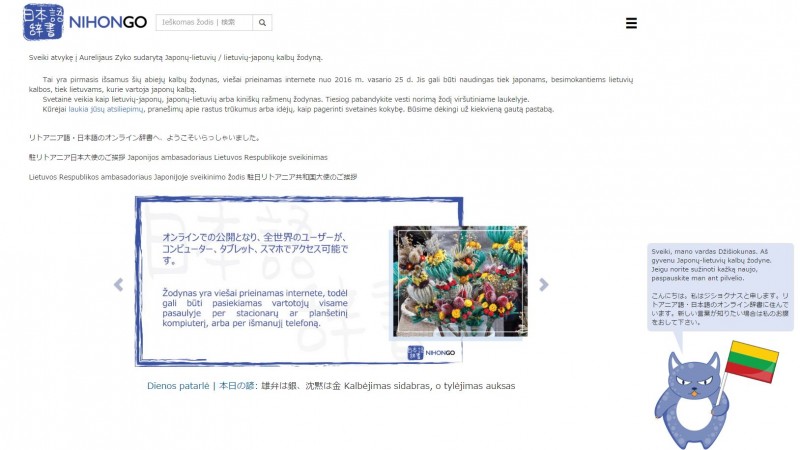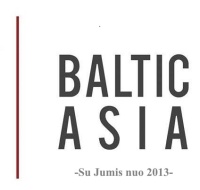The very first Japanese-Lithuanian and Lithuanian-Japanese language online dictionary was launched on February 26th during Vilnius Book Fair’16.
The dictionary was the result of 12 years work by Dr. Aurelijus Zykas, the Head of Asian Studies Center of Vytautas Magnus University. During the launching ceremony, which was attended by the representatives of the Parliament, Ministry of Foreign Affairs, business and academic world, Dr. Zykas presented main challenges which he encountered while composing the dictionary, thanked to the people who contributed to the completion of this tremendous work
Dr. Zykas noted, that except for some examples, Lithuania did not have a full length Japanese-Lithuanian dictionary which would enable to translate words directly from both languages. When translating, usually a Japanese-English and English-Lithuanian or Japanese-Russian and Russian-Lithuanian dictionaries were used. This is not always convenient, therefore, a need for a Japanese-Lithuanian dictionary was obvious.
According to Dr. Zykas, the dictionary carries out two main missions: to become one of the bridges between Lithuania and Japan and to strengthen and secure the future of Lithuanian language by connecting it with another language in a form of a dictionary.
The idea to release an online dictionary was based on several reasons: unlike the paper version, it is much easier to update an online dictionary. Moreover, an an online dictionary provides the possibility for easy and free access for people around the world. Finally, paper version of this dictionary would need to be
thousands pages long, which would make it extremelly uncomfortable to use.
Main difficulties while composing the dictionary were related with translating verbs and nouns. As Dr.Zykas emphasized, Japanese language is based on nouns. Japanese have many ways and words to describe various objects and things. Dr. Zykas used the word „love“ as a an example and explained that Japanese have different ways how to describe love for various objects: friendly love for a friend, passionate love for a man/woman, love for work, etc. While composing the dictionary, it was challenging to find the right Lithuanian expression for each of these words which would convey the true meaning. It is because Lithuanians only use one word to describe all kinds of love (Lit. „meilė“), which can be simply translated into Japanese as „ラブ” (rabu).
Another difficulty which occurred while composing the dictionary was translating verbs. In Japanese, one verb, if not written in kanji, such as かける (kakeru), can mean many different actions in Lithuanian, such as to hang, to water the plants, to to sit on a chair, to put on glasses, to call on a phone, etc. Lithuanian language is rich with verbs, therefore, it is always challenging to find the right one to express the exact meaning.
It took him 12 years to finish the dictionary. There were times when he was not working on the dictionary for months or even years. However, he was always coming back to his work, especially after being encouraged by his family members, colleagues or other people who also contributed in creating the dictionary.
In the end of his speech Dr. Zykas thanked the people who supported his idea and helped to continue with the dictionary. Among many others, Dr.Zykas expressed his gratitude for the former Lithuanian ambassador to Japan, Mr. A.Kudzys, who was also composing a similar dictionary at the time decided to share his work with Dr. Zykas and contribute to his dictionary substantially. During the opening Dr.Zykas invited the guests to try how the dictionary works. Symbolicaly, the first words which were entered in Lithuanian into the dictionary were “exchange”, “friendship”, “piece” and “business”.
The Japanese-Lithuanian online dictionary can be found here.

Japanese-Lithuanian online dictionary
Author of the article: Milda Krasko
